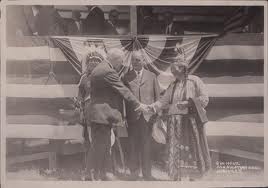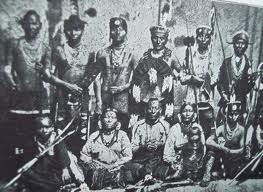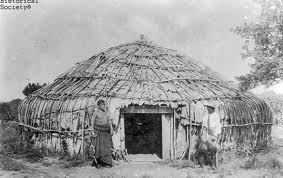Native peoples and European immigrants have had varied relationships. At one time, native tribes were treated as independent nations and trading partners, then later as enemies who needed to be destroyed, and even later, as childish wards who needed federal guidance to educate and assimilate them into the so-called “superior” white society. Several congressional Acts were passed to push this agenda forward, among them the Dawes and Curtis Acts. Land was the essential question: how should Indians hold titles to it?
In 1881 Senator George Hunt Pendleton of Ohio argued that whether for right or wrong, fairly or unfairly, “They [Indians] must either change their mode of life or die.” He pointed out that conditions had changed drastically for them: they were no longer treated as independent nations, they no longer had vast, rich territories on which to live, and white settlements had encroached upon lands once set aside exclusively for Native use.
Pendleton stated that as much as people might regret the situation or wish it to be otherwise, the fact remained that “The Indians cannot fish and hunt . . . they must either change their modes of of life or they will be exterminated.” He went on to urge the President: “we must change our policy . . . we must stimulate within them to the very largest degree, the idea of home, of family, and of property.”
Indian writer and activist D’Arcy McNickle (1904 – 1977), who was Cree, Métis, and Irish but an enrolled member of the Flathead tribe, later commented harshly on Pendleton’s remarks. McNickle wrote: “In the heat of such a discussion, it would not have occurred to any of the debaters to inquire of the Indians what ideas they had of home, of family, and of property.”
His comment was sad but true. McNickle added, “It would have been assumed, in any case, that the ideas, whatever they were were without merit since they were Indian.”






